Carole's Father Tuskegee Airman Wilson Copeland Honored at The March 3, 2016 Black History Breakfast3/1/2016 His stories and expansive capacity to understand world issues were unrivaled. From an impoverished background to graduating from college and survived the bitterness of American racism and discrimination, my father, the late Wilson A. Copeland, was indeed a unique individual. I yearn to travel and understand the world just like him. I navigate the world as an entrepreneur because of him. Our relationship was sometimes topsy turvy, but he was my dad and I loved him. He was a Tuskegee Airman, and we will honor him at Thursday's Black History Breakfast. =================================== The Late Wilson Albert Copeland was born in 1917 in Clinton, South Carolina to Carrie and Bradley Copeland. When his parents divorced he moved to Bel Air, Maryland with his mother and older brother, Eugene. (His mother eventually remarried John Brown in Bel Air, Maryland. Brown was a World War I Veteran.)
Mr. Copeland was enrolled in the then segregated Bel Air/Harford County school system, a system which at that time only provided educational opportunities for Blacks through the ninth grade as further education and training were discouraged beyond that point for people of color. Because of those circumstances, his brother sought employment, soon married his sweetheart Marguerite, and had one son, Charles (now all deceased). Encouraged by his mother and driven from within, he rented a room from the Marshall family who lived in Baltimore directly across the street from Douglass High School, some thirty miles from Bel Air. Working in Baltimore during the week and hitchhiking and working back in Bel Air on the weekends, he graduated from Douglass High School in 1937 and won a scholarship to Virginia State College for Negroes. He went on to obtain a bachelor’s degree in business administration from the college in 1941. After a brief period working in Maryland, Wilson Copeland joined the military as America entered World War II. Mr. Copeland trained at Tuskegee Army Air Field in Tuskegee, Alabama as a Second Lieutenant in the United States Army Air Corps during the war. He would later be known as one of the Tuskegee Airmen. (An ulcer prevented him from completing pilot school, although he continued on in a leadership role in the US Army Air Corps.) A bitter remembrance of racism for him was traveling with other Black soldiers on a military train in the South. Arrangements had been made with restaurants in the region to feed the soldiers. On one occasion the Black soldiers were brought cold box lunches and were forced to eat their meals onboard the trains. In another car, the German prisoners of war were escorted off the train and were allowed to eat hot meals inside of the restaurants along the route. Later he served as the Adjutant Officer assigned to the B25 Bombers at Selfridge Air Force Base in Michigan. Following his honorable discharge, he found employment and moved to Detroit, renting a room in a boarding home in the Black section of the city. The owner of the building, Rev. James A. Charleston, lived next door with his wife, Nora Dean and school teacher-daughter Gwendolyn. One thing led to another when Wilson and Gwendolyn met. They married on December 22, 1946. From this union two children are born, Wilson A Copeland II in 1949 and Carole Dean Copeland in 1953. (Carole was named after both grandmothers—changing Carrie to Carole and using “Dean” from Nora Dean. Instead of a “Junior,” the son became Wilson A. Copeland II.) Active as a Trustee at St. Paul AME Church (pastored by his father in law, Rev. Charleston), Mr. Copeland was engaged in successful business ventures in Detroit including co-ownership in Blue Flame Oil Company. Despite that success, he yearned to build a business in one of the newly independent and developing nations on the African continent. His widespread travels throughout Africa led to marginal and less than successful business projects in Ghana (West Africa) in 1959, shorty after its independence. One of his American business partners was Rev. Albert Cleage, father of the celebrated writer Pearl Cleage. Sadly his marriage failed and he divorced in the early 1960s. Although he married briefly years later, he would never lose affection for his beloved Gwendolyn. He was eventually recruited by the United States Department of State and spent twenty years working for various posts at the American Embassies in Ghana, Nigeria and Liberia. His last eight years of government service were in Nairobi, Kenya. Mr. Copeland retired in 1979, lived briefly in Pennsylvania near his daughter and her family before relocation to Los Angeles. He enjoyed telling stories of his numerous adventures, which included safaris, participating in several historical events, including the first meeting of the Organization of African Unity in Ethiopia in 1963. Mr. Copeland also rescued an American diplomatic pouch and was stranded in Accra, Ghana in the middle of a military coup. At great risk to himself, Mr. Copeland was able to get to the airport, extract the courier and the pouch, and in spite of having to get by several army road blocks and being shot at and chased by rebels, was able to safely return the courier and the pouch to the American Embassy. For this act, he was awarded a State Department Commendation and was made an honorary member of the Embassy Marine Corp Guard. Travel was second nature to Mr. Copeland and the world was his living room. Even after being diagnosed with lung cancer in the late 1980s, he continued to live life to the fullest, frequently driving cross country from California to the East Coast to visit friends and family. He enjoyed his 50th college reunion in Petersburg, Virginia in 1991 and then traveled to Detroit, where he visited with his son and his family and attended the Tuskegee Airmen Convention. His travels took him to Costa Rica in October 1991, before returning to his home in Los Angeles. Wilson A. Copeland departed this life on October 31, 1991, with his spirit, pride and dignity intact. He was buried in the family plot at Elmwood Cemetery in Detroit. Years later in 1998 his first wife, Gwendolyn would be buried next to him. Wilson Copeland was a member of Kappa Alpha Psi Fraternity, the Masons and the Tuskegee Airmen, Inc. The Black History Month Breakfast will be held on Thursday March 3, 2016 at the Boston Colonnade Hotel from 8:30 am to 11:00 am.
0 Comments
He was a barber to the stars, and won a Purple Heart during World War II. He lived to be 104 years old before passing away last December 2015. We will the late James Guildford, Jr. at the March 3, 2016 Black History Breakfast. Lest we forget.... ======================== Article Source: The Boston Globe by Byran Marquard A master barber, James E. Guilford Jr. was a stylist to stars of a storied era in Boston jazz, when a shave and a trim cost barely a buck at his Tremont Street shop. He could also spin stories as elegant as the fine lines that filled his sketchpads after he traded scissors and razor for the pen and a paintbrush of an artist later in life. Mr. Guilford, who died in December 2015 at 104, liked to tell how singer Billie Holiday performed a run of shows at Boston’s famed Storyville club in April 1959 “and gave beautiful performances. I was there every night.” After Holiday’s Saturday show, less than three months before she died, a party was thrown in her honor at another Boston club and “I drove her from Storyville in my Cadillac,” he recalled in a 2005 Globe interview. “She was wearing all black. Her lips were black and her nails were black. We were sitting at a table with about 10 people having cheese and crackers, and they wanted her to sing, and she says to me, ‘Jimmy, what do you want to hear?’ I said, ‘Well, “Lover Man,” ’ and she got up, took the mike, and sang it right next to where she’d been sitting.” A Roxbury resident since birth, Mr. Guilford was the oldest living graduate of Boston Latin School when he died in the Laurel Ridge care facility in Jamaica Plain after his health failed. He began barbering at age 12, cutting hair from 1923 to 1979, and he was awarded the Purple Heart after being injured while serving as an Army sergeant during World War II. When the war ended, he returned to his Roxbury barbershop. “People who were traveling could always come to Boston if they wanted their hair done and have a do. They could come to Jimmy Guilford’s hairstyling salon,” he said in an interview for the WGBH program “Basic Black.” “I had acquired quite a name where I was called ‘the hairstylist to the stars,’ ” Mr. Guilford said. “In my business were such stars as Sugar Ray Robinson and Duke Ellington. Nat Cole and Oscar Peterson. I even did Sammy Davis’s father, but Sammy, he did his own hair. A lot of show people that came to Boston came to me.” Over the years he also sold real estate before devoting much of his time to art. His portrait of the Rev. Martin Luther King Jr. was unveiled in January 1982 in the Central Square branch of the Cambridge Public Library, when Mr. Guilford was 70. “I think the creative part that comes along with being a hairstylist started to express itself on canvas,” said his daughter Marsha Guilford Davenport of Owings Mills, Md. “My home is filled with his artwork. He’s worked in every medium – charcoal, acrylic, watercolors, oil. He even does pen and ink sketches. Art is just something that blossomed in him.” One of four children, James Edward Guilford Jr. was born Oct. 7, 1911, in a third-floor apartment in Roxbury. “He would tell you he grew up in what they called a cold water flat,” his daughter said. His father, James Sr., was from Petersburg, Va. His mother, the former Nannie Belle Haskins, was from Lynchburg, Va. At Boston Latin, Mr. Guilford was the only African-American on the track team in 1926 and was part of a relay squad that set a record while defeating Boston English in late March. His teammate fell behind on the first leg, “but on the back stretch of the second lap James Guilford of Latin passed M.I. Linsky of English and handed over a four-yard margin,” the Globe reported. Latin’s anchor runner held on to win by inches. The Black History Month Breakfast will be held on Thursday March 3, 2016 at the Boston Colonnade Hotel from 8:30 am to 11:00 am. We will celebrate the military achievements of Rev. Dr. Carlita Baldwin Cotton at the March 3rd Black History Breakfast. Rev. Dr. Carlita Baldwin Cotton has combined her love of ministry and the military to serve others throughout her career path of achievement and excellence. An only child, Carlita was born to Rev. Carl L. (deceased) and Dr. Alexinia Y. Baldwin in Birmingham, Alabama. She was baptized, converted and joined St. John AME Church while living in Birmingham.
Carlita first heard the call to the military, joined the United States Air Force in 1980 and served a variety of positions until her retirement in 2000. She was a manager, supervisor and educator and served as a Russian linguist, a strategic debriefer and a combat interrogator during her years of service. She received numerous military awards and citations, including the Joint Service Meritorious Service Award, Joint Service Achievement Award, Air Force Achievement Award and was recognized by the Director of the National Security Agency. Since retiring from military service, Carlita has a permanent listing on the wall at The Women in Military Service Monument in Arlington, Virginia. Carlita is a lifetime member of the American Veterans (AMVETS). She is a lifetime member of Disabled American Veterans and a lifetime and founding member of the Berlin, Germany chapter of the American Legion. Carlita graduated cum laude from State University of New York at Albany in 1989 with a bachelor’s degree in Russian language and literature. She received her masters of divinity degree from Howard University in 2000 and received a Ph.D. in educational psychology from the University of Connecticut in 2008. She is a clinician/counselor and professor of psychology at Goodwin College in East Hartford, Connecticut. Carlita holds memberships in several organizations including Delta Sigma Theta Sorority, Women in Ministry/New England Annual Conference, Pi Lambda Theta Honors Fraternity and Altrusa International, Inc. Rev. Dr. Carlita Cotton is also an ordained itinerant elder in the African Methodist Episcopal Church. She is happily married to Rev. Hollis M. Cotton, pastor of St. James AME Church in Danbury, Connecticut. The Black History Month Breakfast will be held on Thursday March 3, 2016 at the Boston Colonnade Hotel from 8:30 am to 11:00 am. Resourceful, resilient and transformational, Vietnam Era Veteran Haywood Fennell knows how to reach out to the community with gusto. We look forward to honoring him at the March 3rd Black History Breakfast. =================== Fusing Compassion and Community, Learning and Literacy, Haywood Fennell, Sr. continues to add dimensions to his writings. Born in New York City, the now Boston resident recently self-published the first book from The Coota Experiences Trilogy, Coota and the Magic Quilt, (ISBN No. 0-9720404-0-4) and has completed writing the second book, Coota and the Challenge. (ISBN 0-97204046-3).
A well-respected figure in Boston, Haywood is often called a Renaissance Man because of his prolific writings, which draw upon our history for his source material. He is an ex-offender who has refused to allow his past mistakes to hold him “hostage.” He is well known throughout the City of Boston as an advocate for prison reform. A great deal of his work centers around transitional services. He serves on the Board of Directors of the Stanley Jones Clean Slate Project; an ex-offender think tank working to educate and to empower those marginalized by the CORI Laws. Haywood advocates for professional social/mental health services as soon as the person enters the prison system. He helps by visiting jails and prisons and talking about the importance of opening up to change the mindset from wanting to be a smooth criminal to become with skills development a taxpayers a opposed to tax-burden. Also, a Vietnam Era veteran, who served nearly six years in the US Army as a clerk, photographer, and information specialist, Haywood founded The Tri-Ad Veterans’ League; a veterans’ rights advocacy organization where the members incorporate their military skills with program development for educational/cultural programs, particularly around incarceration and HIV/AIDS. The League recently partnered again with The Boston Local Vulcans Society of African-American Firefighters to produce the annual (televised) 9/11 Memorial Service. Presently, the veterans’ organization he founded works withNortheastern University to improve health care services. Their current project focuses on health disparities for African-American veterans that seek health care from the Veterans Administration Medical Centers. Haywood co-hosts a popular weekly cable television program called Speaking About, which welcomes a weekly guest list of community champions who have updates to share and ideas to discuss. This soft-spoken author/playwright has written, produced and staged eight annual performances of the cultural education play,The Harlem Renaissance Revisited With a Boston Flavor (the show’s title will change in the 2007 season toA Story from the Harlem Renaissance.) Haywood attended public school in Wilmington, N.C. and on to Boston University where he studied Urban Planning and U/Mass Boston’s College of Community and Public Service studying Urban Issues. He is the Boston Editor for Unity First, a Springfield, MA based diversity community newspaper. Haywood received the prestigious Boston Neighborhood Fellow’s Award in 2003. He serves on the Advisory Board of the William Monroe Trotter Institute at U/Mass Boston and sits on the board at Boston’s Urban League. He is a lecturer on the Harlem Renaissance Era and its importance to American history and served as a member of the Judging Committee for Reflection in Action; Building Healthy Communities, sponsored byThe Harvard Medical School Office for Diversity and Community Partnership and as a Presenter for theCommunity Enrichment Fellows 2004 and as a member of Roxbury Community College Community Advisory Group. He was named as Boston Herald Literacy Hero in 2005. He was honored on November 4th, 2005 as one of the 100 Distinguished Black Men sponsored by ThePrince Hall Masons of Boston, MA. When speaking to youth, and especially on prison visits, Haywood talks about his going from stealing books to writing books and how is life was changed by other people praying for him, when he would not pray for himself. Haywood’s second Coota book, Coota and the Challenge, will release in early 2007. In 2006 he completed This Man: Thoughts About Our Times, an anthology of his of poetry and prose. He also enjoys freelance photography. The Black History Month Breakfast will be held on Thursday March 3, 2016 at the Boston Colonnade Hotel from 8:30 am to 11:00 am. Pat Odom is a renaissance woman who has pushed her career boundaries throughout her life. We'll honor Pat at the March 3rd Black History Breakfast and celebrate her active role as Massachusetts Army National Guard's first black female recruiter. ================== Patricia Odom is a graduate of Washington Senior High School in Pensacola, Florida and a graduate of Washington Senior Vocational School of Cosmetology also in Pensacola.
Pat began her career as a flight attendant for Mohawk Airlines based in Utica, New York, and was the second black flight attendant who was hired in the early 1970’s. Later she worked for New England Telephone Company as an operator and clerk for two years and bid on jobs to explore different job opportunities. From 1976 through 1987, Pat served her country in the United States Army and served in the Massachusetts Army National Guard. She becoming the first black female recruiter for the Commonwealth of Massachusetts. Pat also achieved the rank of Sergeant First Class (SFC - E-7) while serving in the army. Pat was honorably discharged from the army. She is a proud member of the 60 Plus Veterans Group. Pat earned a bachelor’s degree from University of Massachusetts, Boston and a master’s degree in moderate special needs from Eastern Nazarene College. She retired from a twenty year teaching career in the Boston Public School system. As a special needs teacher, she was voted in as a union representative for teachers. For more than seven years, Pat has owned and operated a landscaping business. Her community activism continues to this day. She has served on the board of the Clark Cooper Community Garden in Mattapan, Massachusetts, and is a neighborhood advocate and supporter of the East River Neighborhood Association. Pat’s talent as an artist has expanded to her latest business venture. She currently sells her paintings throughout the Boston area, and is a member of both the Roxbury Open Studio and the Hyde Park Menino Art Center. She is the mother of one son, Idrissa Johnson, a grandmother of three beautiful girls. Pat is a longtime member of Bethel AME Church-Boston and serves as a church greeter. The Black History Month Breakfast will be held on Thursday March 3, 2016 at the Boston Colonnade Hotel from 8:30 am to 11:00 am. Ron Armstead: Congressional Black Caucus Veterans Braintrust--Honored at the March 3, 2016 Breakfast2/27/2016 We celebrate the achievements of Ron Armstead, who is the Executive Director of the Congressional Black Caucus Veterans Braintrust. He will be honored at the March 3, 2016 Black History Breakfast at the Boston Colonnade Hotel. Ron E. Armstead, is the Executive Director for the Congressional Black Caucus Veterans BraIntrust (CBCVB) located in Washington, DC, and a past consultant to the late Secretary Jesse Brown’s Veterans Administration’s Advisory Committee on Minority Veterans. He has served as Executive Director of the CBCVB since its inception in 1988, first under Rep. Charles B. Rangel (D-NY), a decorated Korean War combat veteran and Dean of the New York Congressional Delegation, and currently under Reps. Corrine Brown (D-FL), new Ranking Member of the House Veterans Affairs Committee, and Sanford Bishop, Jr. (D-GA), Ranking Democratic Member of the House Appropriations Subcommittee on Military Construction and Veterans Affairs, and Co-Chair of the bi-partisan Congressional Military Families Caucus.
Under his leadership the Veterans Braintrust has expanded from its small core group to become one of the premiere forums for policy debate between veterans of African descent and representatives of government in the country. Lastly, Ron holds a Master Degree in City Planning (MCP) with a concentration in Affordable Housing and Community Development from Massachusetts Institute of Technology (MIT); is a Licensed Social Worker (LSW) in the Commonwealth of Massachusetts, and is currently on an extended leave of absence from Howard University’s Graduate School of Social Work Doctoral Program focusing on Social Policy and Planning. The Black History Month Breakfast will be held on Thursday March 3, 2016 at the Boston Colonnade Hotel from 8:30 am to 11:00 am. We celebrate the achievements of Kenn Turner, who served in the US Navy for 26 years before retiring in 2006. He will be honored at the March 3, 2016 Black History Breakfast at the Boston Colonnade Hotel.
============= Kenneth L. Turner, Director of Diversity & Inclusion/Compliance, joined the Authority in June 2013. He oversees and manages the Authority’s multiple diversity programs, including business and supplier diversity, workforce diversity, and airport concessions, as well as all compliance initiatives associated with Massport’s Disadvantaged/Minority/Women Business Enterprise programs. Prior to joining Massport, Mr. Turner served as Deputy Secretary for Administration & Finance for the Commonwealth of Massachusetts Department of Veterans’ Services. He also has over 20-years of general management and executive experience in various Fortune 100 companies including having served as a Senior Vice President at AOL Time Warner. A retired U.S. Navy Captain with 26-years of service, Mr. Turner began his military career as NRTOC scholarship midshipman and received his B.S. degree in Liberal Arts and a commission in the Navy from Southern University and A&M College in Baton Rouge LA. Upon graduating college he completed the Submarine Officer Basic Course, the Torpedo Officer Course, and Tactical Weapons Officer Course at Naval Submarine Base New London; the C-3 Poseidon Missile Strategic Weapons Officer course at Naval Guided Missiles School Dam Neck; and the Trident C-4 Missile Strategic Weapons Officer course before reporting aboard USS Stonewall Jackson (SSBN 634 Blue Crew) as Assistant Weapons Officer. During his initial sea tour Capt. Turner completed the officer submarine warfare requirements to receive his gold dolphins and was certified as a Strategic Nuclear Weapons Systems Officer. He was assigned shore duty at Naval Guided Missiles School Dam Neck where he served as course supervisor for the Prospective Commanding Officer/Executive Officer Trident C-4 Nuclear Weapons System Course and received his Master Training Specialist qualification. Transferring to the Naval Reserves Capt. Turner served in nine units over the course of 20-years and was selected as Commanding Officer of three reserve units: NR AFDM-6 Competent Det. 0618 Pearl Harbor; NR SUBASE Pearl Harbor Det. 918; COMSUBGRU 2 Det. 101 New London. After 911 he transferred to The Pentagon in Washington DC where he served on the Chief of Naval Operations (CNO) OPNAV staff as Deputy Chief of Staff, Programming Division, Deputy Chief of Naval Operations (Resources, Warfare Requirements, and Assessments). Capt. Turner retired in 2006. Over the course of his career Captain Turner received numerous awards for his service to include: the Navy and Marine Corps Commendation Medal (2 awards); the Navy Achievement Medal (4 awards); the Navy Sea Ribbon (2 awards); the Armed Forces Reserve Medal; and the National Defense Service Medal. The Black History Month Breakfast will be held on Thursday March 3, 2016 at the Boston Colonnade Hotel from 8:30 am to 11:00 am. From Left to Right: Enoch Woodhouse, Willie Shellman, Harvey Sanford, The Late William Vickers, Delbrook Binns and Dr. Harold May Photographer: Dennis Stein/Metrowest Daily News ===================================================================================== Our March 3, 2016 Black History Breakfast will pay tribute to the six LIVING New England area Tuskegee Airmen and the Tuskegee Airman who just passed away earlier in February. Below are their biographical profiles and the history of the New England chapter, headed by Willie Shellman. All will be honored at the Breakfast. Special Thanks to Willie Shellman for providing this article about these extraordinary men. -Carole Copeland Thomas A Short History of the Tuskegee Airmen and Biography Notes of Massachusetts Tuskegee Airmen The New England Chapter is based in Massachusetts and is one of approximately 50 chapters of Tuskegee Airmen Incorporated. Tuskegee Airmen Incorporated (TAI) is a national civic organization that was formed in 1973. The goals of TAI are to:
On January 16, 1941 the War Department announced the formation of the 99th Pursuit Squadron, a black flying unit, to be trained at Tuskegee, Alabama, the home of the Tuskegee Institute. Thus the "Lonely Eagles," as the black pilots called themselves, became reality. The first class, which was designated 42-C, began on July 19, 1941. Five students completed the training and received their wings on March 7, 1942 The 99th was later joined other Tuskegee squadrons to form the 332nd Fighter Group. The 332nd flew P-40, P-39, P-47, and P-51 aircraft in combat throughout the Mediterranean and European Theaters and became a respected and decorated group of fighter pilots. The group was known as the "Red Tails" for their aircraft paint scheme. The bulk of the Black flyers were in the 332nd Fighter Group. Veterans of the 332nd Fighter group and newly trained pilots were used to form the 477th Bombardment Group. The Bombardment squadrons were equipped with B-26 aircraft and later with B-25s. The war ended before the 477th Bombardment Group was deployed overseas. From the inception of the 99th through the period that signaled the ending of World War II (1946), the following number of black combat flyers completed their training:
Class 46-C, which graduated on June 29, 1946, was the last pilot class to finish at TAAF. In order to support the black flyers ten times as many administrative and ground support personnel were trained. In order to keep the pilots flying the Army Air Corps trained and deployed Black servicemen in all the required support functions (mechanics, ground crew, nurses, etc.). The “Tuskegee Experiment” succeeded beyond the expectations of even those who proposed the program. The excellent record of the 332nd Fighter Group in combat led to a review of the War Department's racial policies and a presidential order in 1947 to desegregate the United States Armed Forces. There were 14 pilots and numerous support personnel from Massachusetts. Today the following Tuskegee Airmen are living in Massachusetts. *Raymond Baker entered the U.S. Army in 1944. He went to Biloxi MS for basic training and then was assigned to Tuskegee Army Airfield. After several months Raymond began pilot training as a member of Class 45I. The war ended before his completion of the flying program. Mr. Baker was discharged in July 5, 1946 and returned to Brockton, MA. *Jack Bryant grew up in Chicago, IL and followed his brother into pilot training in the Army Air Corp in 1945. The pilot training program at Tuskegee Army Air Field was discontinued before Jack’s class completed training and Jack was discharged in 1946. Jack entered the University of Michigan and graduated with a degree in Civil Engineering. In 1961 Jack moved to Boston and started Bryant Engineering, a civil engineering firm specializing in major infrastructure projects. *George W. Giddings from Yonkers, N.Y attended Fisk University. He entered Aviation Cadet training in 1942 and was assigned to Class 43H at Tuskegee Army Air Field. Served until 1946. George was grounded due to an eye problem. He then attended Navigator training at Hondo AAF, Texas, Bombardier training at Roswell AAF, NM and Gunnery training at Yuma AAF, AZ and was discharged in 1946. *Harold May, MD. from Poughkeepsie NY, completed two years of undergraduate study at Harvard University before joining the Army Air Corp in 1945. The war ended before Harold could complete his pilot training and upon discharge he returned to Harvard University to complete his undergraduate studies and completed the medical degree program and Harvard Medical School. Dr. May began a missionary medical assignment in Haiti and stayed for eleven years. Upon his return to the United States Dr. May practiced medicine at Brigham and Women’s Hospital until retirement. Dr. May remains active as a founder and Board member of the humanitarian organization Family, a human service organization operating in Dorchester Massachusetts and Haiti. *Harvey F. Sanford graduated from the Boston Trade High School in Airplane Engine mechanics in 1944. In 1945 Harvey entered the U.S. Army Air Corps and was stationed at Tuskegee Army Air Field as an Air Inspector (Airplane and Engine) until his discharge in 1946. While at Tuskegee Harvey often traveled with the Base Commander while being responsible for the maintenance of the commander’s aircraft. And, from 1950 to 1952 during the Korean Conflict served in light Aviation Aircraft maintenance in the 272nd field Artillery group. Returning to Boston Harvey worked in aircraft research and development at Hanscom Air Force base until 1970. And, from 1970 until retirement in 1983 he worked as a FAA Airworthiness Inspector assigned to Logan Airport Boston, MA. *Enoch Woodhouse II, Esq. graduated from English High School in Boston, MA. Joined the U. S. Army Air Corps and completed the Officers Candidate School in 1946, at the age of 19. Served as Finance Officer for the 477th Bombardment Group at Lockbourne AF, OH. He was discharged from active duty in 1949 and joined the Air Force Reserves. While in the Air Force Reserves, Enoch attended Yale University and Boston University Law School. He was assigned to the Air Force JAG Office in 1956, while serving as a reservist at Hanscom AFB. Mr. Woodhouse retired from the Air Force Reserves as a Lt. Colonel in 1972. Attorney Woodhouse practiced law in Boston and served as a Diplomatic Courier for the U.S. State Department in Europe, Africa and South America. He is former Assistant Corporation Counsel for the City of Boston and served as Public Member for Promotion of the State Department of Officers. Sadly, Mr. William Vickers passed away on February 2, 2016. Here is his biographical profile. *William Vickers graduated from Boston Trade High School and entered the U. S. Army in 1944 qualifying for assignment in Pilot Training program. Mr. Vickers took basic training at Kessler Field in Biloxi, MS. Mr. Vickers was stationed in Sebring Florida as a member of the B-17 Ground Crew. Later William was sent to Bombay India and stationed in the Assam Valley in India as part of the Air Transport Command. Upon discharge in 1946, Mr. Vickers joined the National Guard and was recalled to active duty in 1950 and stationed at Camp McCoy in Wisconsin and later sent to Helicopter school before his release from active duty in 1952. Mr. Vickers continued to serve and retired from the National Guard after 22 years of service. **************** 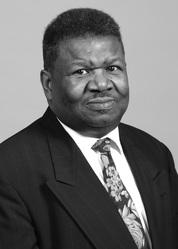 Willie Shellman joined Tuskegee Airmen, Inc. as a civilian in 1985 and currently serves as President of the New England Chapter. He graduated from high school in Chicago, IL. and later graduated from Tuskegee University with a degree in Electrical Engineering. Willie was employed as an Auto Pilot Design Engineer on C-5 and F-14 aircrafts and as an Avionics Design Engineer in missile systems. Mr. Shellman majored in Business Administration at Northeastern University and was employed as a Sales Operations manager in the computer and internet industries. Mr. Shellman most recent employment was as the Executive Director of the YMCA Achievers Programs at the YMCA of Greater Boston. Mr. Shellman is currently retired. Having lived in several cities around the United States, Willie and his wife Maxine, along with their daughter and son have resided in Sudbury Massachusetts for the past thirty-five years. Acknowledgements: Many dedicated Massachusetts Tuskegee Airmen have preceded us in their Homecoming. We dearly remember George S. Lima, Jr. (Rhode Island), William Bennett, Vernon Burke, Charles Diggs, James Fischer, Lloyd Godfrey, Daniel Grant, Stephen Hargrove, Milton Hopkins, Fuzzy Hector, Luther McIlwain, James McLaurin, Allen Monroe, Daniel Moore, Robert Newton Sr., John Roach, Frank Roberts, Thomas Ross, Willis Saunders, Herman Wells and many others. Biography Of The Late
Captain James Franklin Fitzgerald, M.D. U.S. Army Medical Corp Written by his Son in Law, Attorney Wilson A. Copeland, II Dr. James Franklin Fitzgerald was born in February,1919 to James and Lillian Fitzgerald and lived in Wilmington, Delaware from his birth through high school graduation. His undergraduate life was spent at Pennsylvania’s Lincoln University, where he became a member of the Kappa Alpha Psi Fraternity, followed by what proved to be his inadvertent path to a most memorable military experience, matriculation at Meharry Medical College in Nashville, Tennessee, where he received his M.D. degree. Like all other American medical schools, Meharry was taken over by the United States Army during the Second World War due to the pressing need for physicians, dentists, and nurses in the Armed Forces. This situation resulted in the students essentially being conscripted, with their tuition being paid by the government, going to class in uniform, attending school year round, with graduations being conducted three times a year and culminating in reporting for duty following a one year internship. March of 1944 proved to be a busy month for James Franklin Fitzgerald; graduating from Meharry on the 19th, marrying Fisk University graduate, Alberta Price on the 26th, and establishing a new home for his bride and himself in Washington, D.C., where he would spend his next year as an intern at Howard University’s Freedom Hospital. While at Freedman’s, a pyrrhic victory of sorts occurred when a letter from the Army arrived advising him that the ebbing World War had resulted in a reduction of the need for health care professionals and he needn’t report for duty. Thus, upon completion of his internship, he headed for Detroit, Michigan to begin his practice and, where believing himself to be in the Army Reserve, he gave short shift to the letters from the U.S. Navy that arrived in the late 1940’s, believing them to be recruitment efforts and knowing the Navy was the least receptive of all the Armed Services about President Truman’s 1948 desegregation orders. The onset of hostilities in Korea were the precursor to a visit to his office from the two FBI agents who arrested him for failing to report for induction; it seems those ‘recruiting letters’ were in fact notices advising him that he had been transferred to the Naval Reserve. He was released from a federal detention cell that evening with the understanding he was to report for duty the next day. He did, entering the office of the Naval Recruiting Center that morning, the officer on duty took one look at him, asked with some degree of chagrin and incredulity, “You’re James Franklin Fitzgerald?” and receiving the affirmative reply, immediately blurted out, “There must be some mistake, just go home and we’ll contact you sometime in the future.” It seems the name James Franklin Fitzgerald fit someone ‘From the Old Sod’ – his skin color, however, did not – and the Navy realized there had indeed been a mistake. Over the next few months, an administrative transfer back to the Army took place and Captain James Franklin Fitzgerald, M.D. found himself in a MASH unit in Korea, where he served with distinction from 1952 to 1954. During the course of his service in Korea, Captain Fitzgerald was awarded three Purple Hearts. One coming as a result of assisting in a surgical procedure on a wounded GI and together with the rest of the surgical team, continuing the operation, despite incoming artillery shells, for this act the Purple Heart he was given for the injuries caused by those shells was accompanied by the Bronze Star. Returning to Detroit after completing his service to his country, Dr. Fitzgerald practiced medicine until his untimely death from an untreatable abdominal infection on Thanksgiving Day 1960 at the age of 41. He was survived by his wife, Alberta and their daughter, Deborah Fitzgerald Copeland. ==================== Deborah Fitzgerald Copeland will fly in from her home in Detroit, Michigan to received the Black History Month award on behalf of her late Father. Special Thanks to JET BLUE AIRLINES, who are Breakfast Sponsors and responsible for Mrs. Copeland's travel arrangements. =================== The Black History Month Breakfast will be held on Thursday March 3, 2016 at the Boston Colonnade Hotel from 8:30 am to 11:00 am. I am so excited and proud about ALL of those who will be honored at our March 3rd Black History Breakfast. However, you need to read this biographical profile of a true American hero who followed his love of airplanes and never got sidetracked because of his race. The story of Harvey Sanford is so compelling that I urge you to share it with your children, friends, grandkids, colleagues and staff members to help them understand the true grit of these men of action. Harvey Sanford was a member of the famous Tuskegee Airmen and is a current member of the New England Chapter Tuskegee Airmen, Inc. Special thanks to Dr. Judith Sanford-Harris for sharing this wonderful profile about her father. It will make you proud of the outstanding achievements of African American men and women whose bravery and dedication have made our country great. Harvey Sanford is enjoying his retirement years with with his beautiful wife and family in suburban Boston. He will be honored at the March 3, 2016 Black History Breakfast at the Boston Colonnade Hotel. Come meet the heroes and sheroes and thank them for their dedicated service to America. Harvey F. Sanford Harvey was born on Hammond Street in Boston’s South End in 1926 to Oswald Sanford and Georgianna (Jones) Sanford. He was an only child and was lovingly called “Sonny” by his parents. As a boy he spent summers with his mother’s family in Annapolis, MD and is a connoisseur of crab cakes. He also went with his father each month to visit his Mashpee Wampanoag family on the Cape. His mother said that his favorite toy at a very early age was an airplane he made from popsicle sticks and his love of airplanes has continued through his lifetime. Harvey attended Boston Trade High School for Boys in the aeronautics program and played the fife in the school’s fife & drum corps. He was one of four students who completed his high school credits one year early, and the four were hired by what was then known at East Boston Airport to work as aircraft mechanics for their senior year. The airport was already familiar to him, as he had visited many times as a boy with his father to watch the trucks bring landfill to dump into the harbor to extend the runways. A year after graduation, in 1945, he was drafted and “…shipped to Tuskegee,” assigned to Squadron A, 385th Army Air Force Base Unit. He vividly remembers his train ride south to Chehaw Station, Alabama. Black passengers could sit anywhere when they got on the train in Boston but once they crossed the Mason-Dixon line in Washington, DC, they all had to get off of the train and move to the front car of the train – the one closest to the smoke and dust from the coal engine. Once at Tuskegee Army Air Field/Moton Field, they were lined up for jobs and Ralph White, who was from Boston and had been there for several months, recognized him and asked why he was there. Harvey said, “They told us we were going to build airplanes,” to which Ralph replied, “Already built.” Harvey explained what he’d been doing at East Boston Airport and Ralph took Harvey and his files to his boss, Major Boyd, second in command. Major Boyd said, “You’re just what we need. You’ll work for me and the base commander. You will have no other duties.” He than told Ralph to get Harvey a room. Harvey says, “I didn’t have stripe the first but I was with all non-coms.” Harvey was eventually promoted to the rank of sergeant. His job was to inspect all aircraft and engines after every 25 hours of flying, on the ground and during test flights with the pilots. Once per month he would fly Major Boyd and the base commander, Major Parrish, to Washington, DC for meetings and he would spend time with family in Annapolis. When he would return the next morning, his plane would have been moved and parked in a far corner of the air base, away from all of the “white” planes. Tuskegee, Alabama was a “dry” town. Now and then Harvey would have to fly to Chicago and, since he didn’t drink, the guys trusted him and would hive him money to buy liquor. Before leaving Chicago a truck would back up to the plane and load the liquor. Pat Evans, the Macon County sheriff and a notorious racist, never did figure out how liquor was getting onto the base. Evans was known for arresting black soldiers on false charges when they went into town and putting them to work on local chain gangs, so being able to bring the liquor in without Evans knowing how was a mini-victory. Harvey received an honorable discharge in October of 1946 and went to work at Fort Devens, MA as a National Guard aircraft mechanic. During the Korean Conflict, from 1950-52 he did light aviation aircraft maintenance with the 272nd Mass. National Guard Field Artillery, first in Wisconsin where it was so cold that guns didn’t fire, children got frostbite while sleeping, and water inside the barracks froze, and then in Schwäbisch Gmünd, Germany. Part of his role during this time was to fly along the German border with Chuck Lee, also a Boston native, doing border patrol. He also served with Billy and “Lafe” Bingham, whom he knew from home. On his return home, his job was airforce research and development at Hanscom Air Base, including supervising the installation of test equipment. He was authorized to “run up” supersonic aircraft including the F101, F102, and F106, and other aircraft such as the T-39 and the KC-135. From 1974 until his retirement in 1984 he worked as an airworthiness inspector for the Federal Aviation Administration (FAA) at Logan Airport, specializing in accident investigation and the inspection of airline aircraft, and then as an FAA consultant. Harvey’s hobbies before retirement were building an extensive model railroad in his basement and one for his granddaughters, and building and flying radio control airplanes. Since retirement, Harvey has volunteered every Saturday with the Collings Foundation and with MayoCraft on aircraft restoration and repair. Aircraft have included a B-17, B-24, B-25, B-6, PT-17, T-6, Wright B-Flyer, two Piper Cubs, a 1911 Bleriot, and a Waco Cabin. The MayoCraft volunteers also built an airworthy P-26D from scratch. While with the Collings Foundation, Harvey and Ret. Col. John Roach flew the B-17 and B-25 to air shows around the country and took the public up for rides. As an Original Tuskegee Airman, Harvey is a member of the New England Chapter, Tuskegee Airmen, Inc. In 1996 he was recognized as “the youngest African American maintenance inspector to take part in the advanced training group at the Tuskegee Army/Air Field” and in 2007 traveled to Washington DC as one of 300 recipients of the Congressional Gold Medal, a prestigious award given by Congress for their service. He was also awarded an Honorary Citizen’s Award at the 73rd annual convention of the NAACP in Boston in 1982. As a member of the New England TAI chapter, he has received many certificates and accolades in appreciation of his and their service and their many presentations around New England to educate young people about the Tuskegee Airmen. Harvey’s first love is obviously airplanes in any shape or form, but his wife of 65 years, Alice (Taylor) Sanford and family are equally important. Harvey and Alice met when they were 12 years old and married shortly after her graduation from Wheaton College in 1950. They have one daughter, Dr. Judith Sanford-Harris, a son-in-law, Boston Police Deputy Superintendent Joseph Harris, and two granddaughters, Stacey and Stephanie Harris. Harvey was known over the years as the Mr. Fixit of his family, friends, and neighbors. He was often the go-to person for car repairs, plumbing, minor electrical repairs, and some construction and installation, skills he learned from his father, a talented auto mechanic. He never said no when asked for help. Harvey is a gentle man with a quiet, dry wit who has always played a strong, supporting role to everyone who knows him. If life were a movie, he’d win the Oscar for Best Supporting Actor! The Black History Month Breakfast will be held on Thursday March 3, 2016 at the Boston Colonnade Hotel from 8:30 am to 11:00 am.
|
* * * * * * * *Archives
August 2023
|
©2024 All Rights Reserved Carole Copeland Thomas • (508) 947-5755 • Carole@mssconnect.com
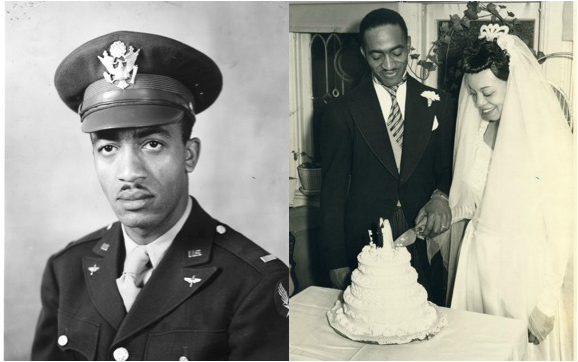
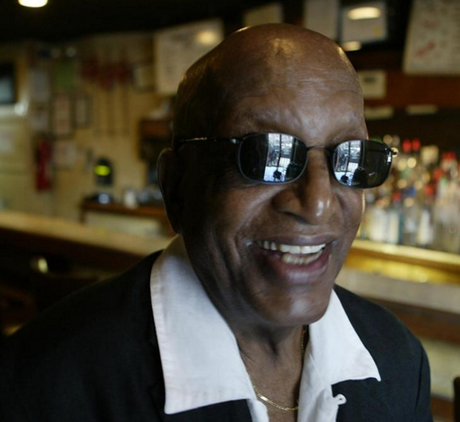
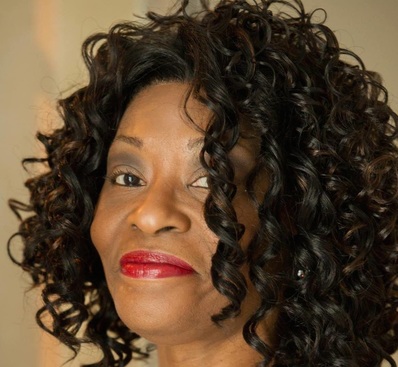
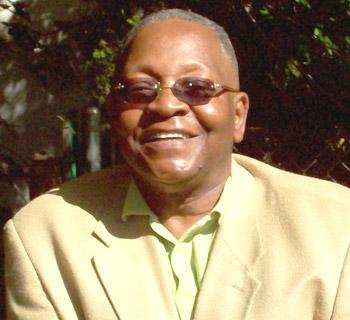
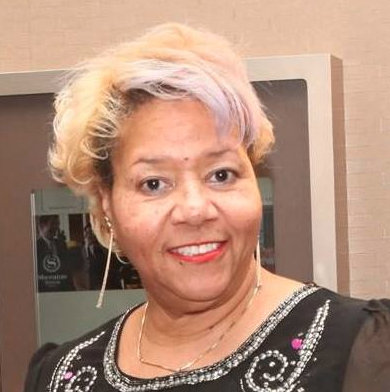
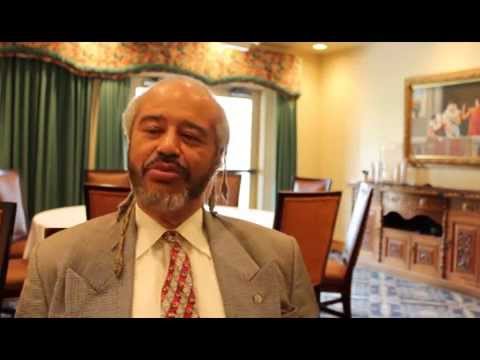
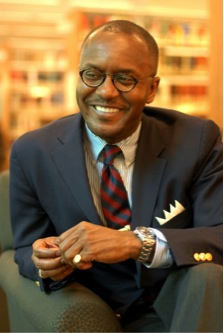
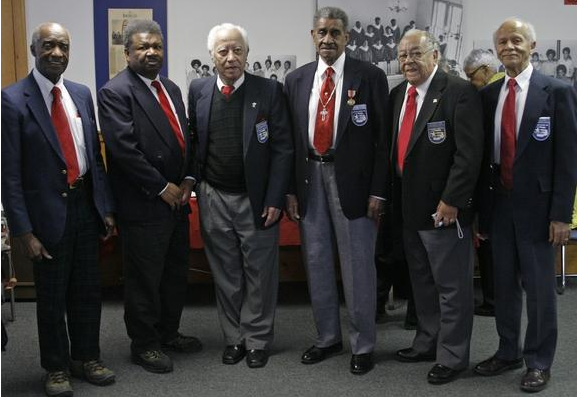
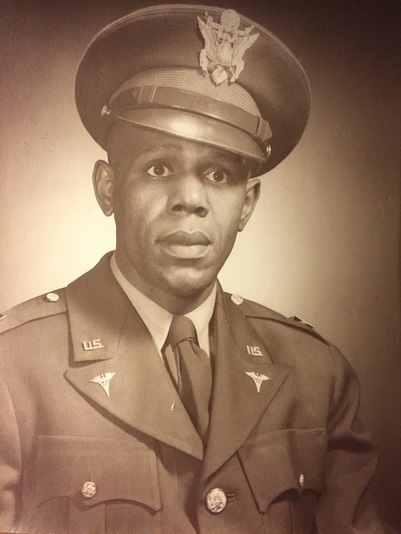
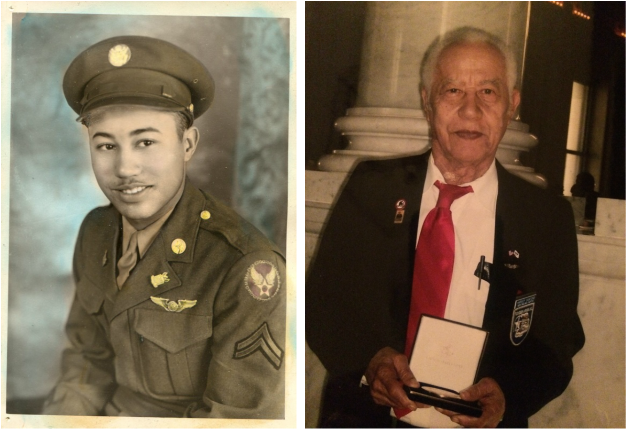
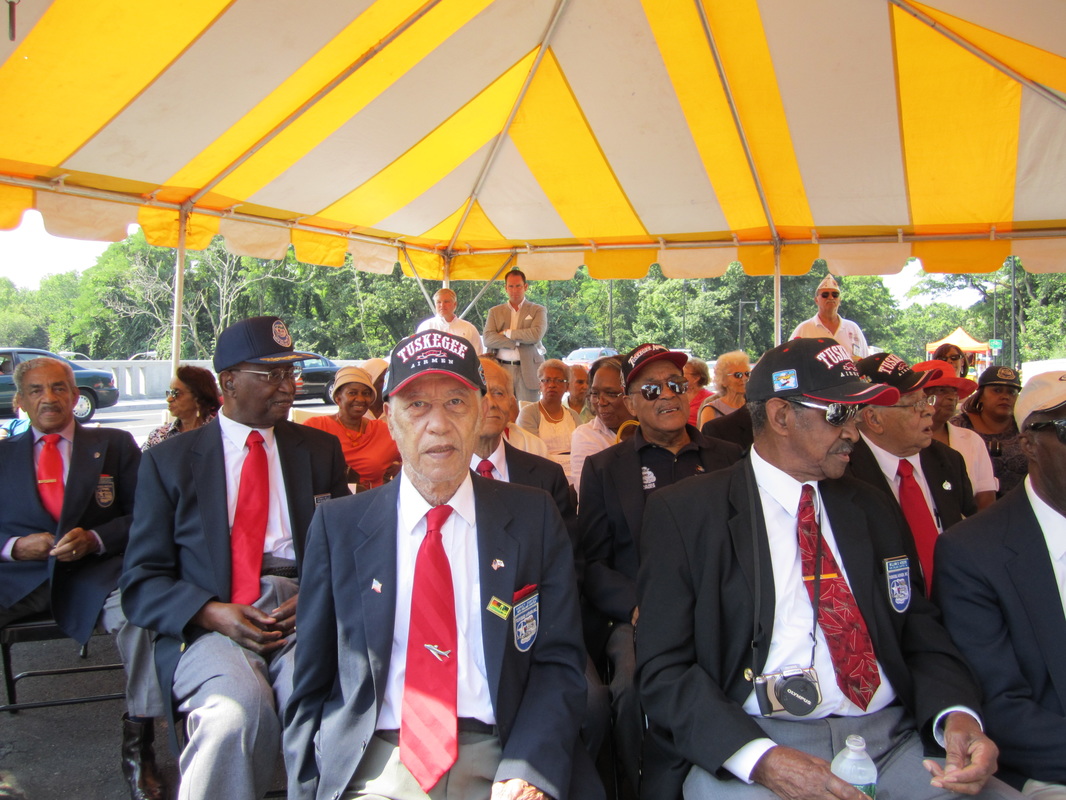

 RSS Feed
RSS Feed